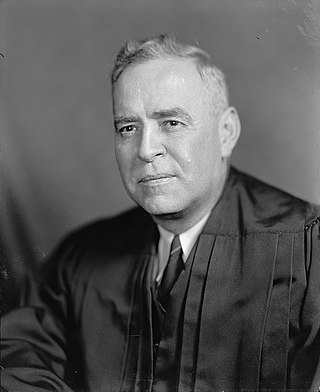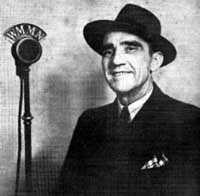
Grainger County is a county located in the U.S. state of Tennessee. As of the 2020 census, the population was 23,527. Its county seat is Rutledge. Grainger County is a part of both the Knoxville Metropolitan Statistical Area and Morristown Metropolitan Statistical Area.

Rutledge is a city in and the county seat of Grainger County, Tennessee. The city is part of both the Knoxville metropolitan area and the Morristown metropolitan area. As of the 2020 census, the city had a total population of 1,321.

1776 is a musical with music and lyrics by Sherman Edwards and a book by Peter Stone. The show is based on the events leading up to the signing of the Declaration of Independence, telling a story of the efforts of John Adams to persuade his colleagues to vote for American independence and to sign the document. The show premiered on Broadway in 1969 where it received acclaim and won three Tony Awards, including Best Musical. The original production starred William Daniels as Adams, Ken Howard as Thomas Jefferson and Howard Da Silva as Benjamin Franklin.

The Judiciary Act of 1789 was a United States federal statute enacted on September 24, 1789, during the first session of the First United States Congress. It established the federal judiciary of the United States. Article III, Section 1 of the Constitution prescribed that the "judicial power of the United States, shall be vested in one Supreme Court, and such inferior Courts" as Congress saw fit to establish. It made no provision for the composition or procedures of any of the courts, leaving this to Congress to decide.

Wiley Blount Rutledge Jr. was an American jurist who served as an associate justice of the Supreme Court of the United States from 1943 to 1949. The ninth and final justice appointed by President Franklin D. Roosevelt, he is best known for his impassioned defenses of civil liberties. Rutledge favored broad interpretations of the First Amendment, the Due Process Clause, and the Equal Protection Clause, and he argued that the Bill of Rights applied in its totality to the states. He participated in several noteworthy cases involving the intersection of individual freedoms and the government's wartime powers. Rutledge served on the Court until his death at the age of fifty-five. Legal scholars have generally thought highly of the justice, although the brevity of his tenure has minimized his impact on history.

The Constitutional Convention took place in Philadelphia from May 25 to September 17, 1787. Although the convention was intended to revise the league of states and first system of government under the Articles of Confederation, the intention from the outset of many of its proponents, chief among them James Madison of Virginia and Alexander Hamilton of New York, was to create a new Frame of Government rather than fix the existing one. The delegates elected George Washington of Virginia, former commanding general of the Continental Army in the late American Revolutionary War (1775–1783) and proponent of a stronger national government, to become President of the convention. The result of the convention was the creation of the Constitution of the United States, placing the Convention among the most significant events in American history.
Michael Ross "Roscoe" Rutledge is a former field hockey player.
USS Edward Rutledge (AP-52/APA-24) was an Edward Rutledge-class troop transport (AP), later re-designated as an attack transport (APA). She was acquired by the U.S. Navy for use in World War II, and was assigned the task of transporting troops to and from battle areas. Operating in dangerous Mediterranean waters on 12 November 1942, she was sunk after being struck by a German submarine’s torpedo at Fedala Bay, Morocco.
Forbush is an unincorporated community in central Yadkin County, North Carolina, United States. The community is named for George Forbush, one of the earliest European settlers in Northwestern North Carolina. Forbush, who moved south from Maryland, Pennsylvania and Virginia, settled on the west bank of the Yadkin River about two miles north of Shallow Ford in 1748.

John Rutledge was an American Founding Father, politician, and jurist who served as one of the original associate justices of the Supreme Court and the second chief justice of the United States. Additionally, he served as the first president of South Carolina and later as its first governor after the Declaration of Independence was signed.

Leonard Harrison Aleshire was a versatile American vaudeville and later country music performer from the 1920s into the 1960s. A singer, dancer and songwriter, he was also half of a musical comedy duo, Lennie and Goo Goo, with Floyd Rutledge. The pair appeared on local and national radio and television programs originating from Springfield, Missouri, during the 1940s and 50s.
The Committee of Detail was a committee established by the United States Constitutional Convention on July 24, 1787, to put down a draft text reflecting the agreements made by the convention up to that point, including the Virginia Plan's 15 resolutions. The convention adjourned from July 26 to August 6 to await their report. Much of what was contained in the final document was present in this draft.
Jonathan R. Davis was an American gold rush prospector. On December 19, 1854, he single-handedly killed eleven armed outlaws at Rocky Canyon near Sacramento, California using two Colt revolvers and a Bowie knife. This episode became one of the deadliest small arms engagements in American history involving one man against multiple foes. Michael Trcic depicted the event in the sculpture "One Man With Courage is a Majority". He was educated at South Carolina College, where he was a member of the Euphradian Society.

Leslie Carol Rutledge is an American attorney and politician from the state of Arkansas. A member of the Republican Party, she was attorney general of Arkansas from 2015 to 2023, and since 2023 has been lieutenant governor of Arkansas.
Phyllis Jean Rutledge was an American politician.
Fleming Rutledge is an American Episcopal priest and author. Ordained to the diaconate in 1975, she was one of the first women to be ordained to the priesthood in the Episcopal Church.

Wiley Rutledge was nominated to serve as an associate justice of the Supreme Court of the United States by U.S. President Franklin D. Roosevelt on January 11, 1943, after the resignation of James F. Byrnes created a vacancy on the court. Per the Constitution of the United States, Rutledge's nomination was subject to the advice and consent of the United States Senate, which holds the determinant power to confirm or reject nominations to the U.S. Supreme Court. After being favorably reported on by both a subcommittee of the Senate Committee on the Judiciary and the full Judiciary Committee, the nomination was confirmed by the full Senate through a voice vote on February 8, 1943.











